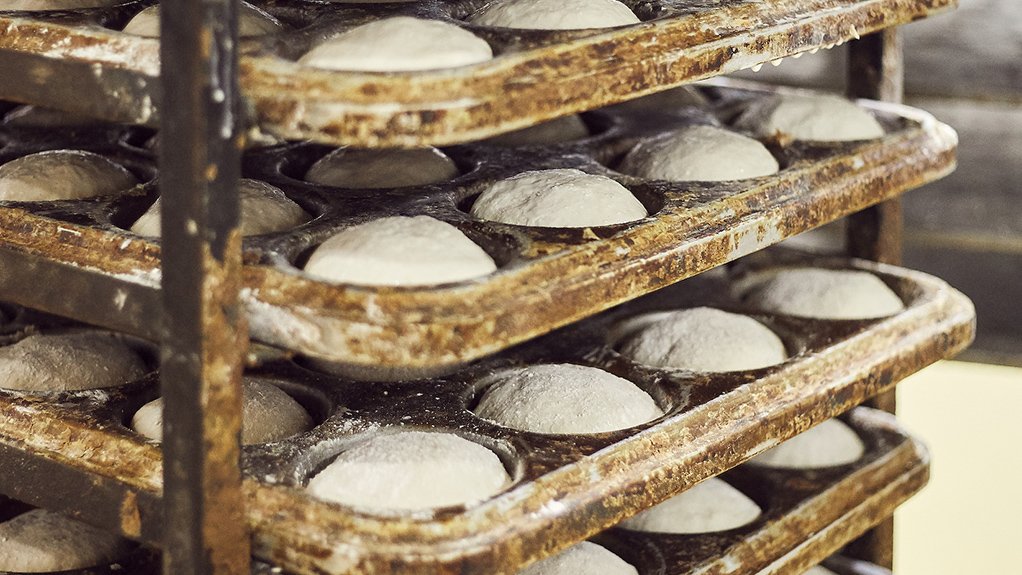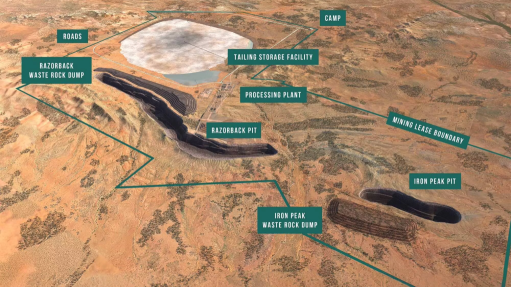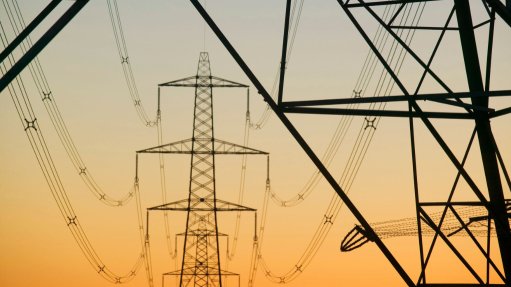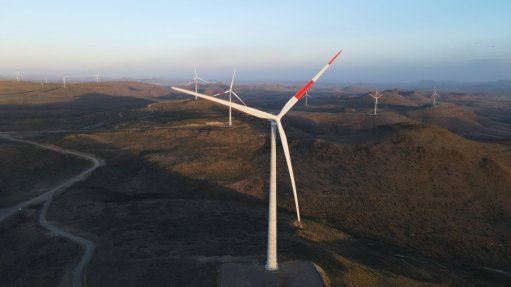Govt extends diesel fuel levy refund to foodstuff manufacturers
To limit the impact of the energy crisis on food prices, government has decided to extend a diesel fuel levy refund to manufacturers of foodstuffs for a period of two years, effective from April 1, 2023, to March 31, 2025.
This, alongside an announcement of no increase in the general fuel levy, was announced during the National Budget speech for the 2023/24 financial year, which was delivered by Finance Minister Enoch Godongwana on February 22.
Farmers and agroprocessors have been hit hard by increasing input costs such as fertiliser and fuel, particularly as many of them have opted to install diesel generators as a backup source of power during loadshedding. Godongwana admitted that prolonged power failures have hampered operations and investment in manufacturing and agriculture and expects real gross domestic product (GDP) growth to only reach 0.9% in 2023, mainly as a result of loadshedding.
This follows a GDP growth rate of 2.5% in 2022, which the agriculture sector strongly contributed to.
Industry bodies such as Agri SA had asked government for rebates on diesel used by farmers and agroprocessors for backup power, among other requests to bring relief to the sector.
Government started implementing a diesel refund system in 2000 to provide full or partial relief from the general fuel levy and the Road Accident Fund (RAF) levy to primary sectors such as agriculture.
The refund system is in place for the farming, forestry, fishing and mining sectors. However, in light of the electricity crisis, a similar refund on the RAF levy for diesel used in the manufacturing process, such as for generators, has been extended to the manufacturers of foodstuffs.
Although the refund extension becomes effective on April 1, refund payments will take place once a system has been developed.
Meanwhile, South Africa has one of the most oppressive tax regimes in the world, with the African National Congress administration imposing a 33% tax on fuel prices through various levies. Since 2008, the Road Accident Fund levy has increased by 425%, the general fuel levy by 225% and the basic fuel price by 119%.
The Democratic Alliance earlier in February called on government to review its fuel price determination model and scrap the fuel levy entirely, to relieve what it deems an undue burden on the business sector, particularly small businesses, which are facing a full-blown cost-of-doing-business crisis.
Government envisions receiving R90.4-billion in tax revenue from fuel levies in the 2023/24 financial year and expects to take a R4-billion knock from not increasing the general fuel levy.
OTHER INCREASES
Excise duties on alcohol and tobacco, however, will increase in line with expected inflation of 4.9%, with the rate for sparkling wine pegged at 3.2 times that of natural unfortified wine.
The guideline excise tax burdens for wine, beer and spirits are 11%, 23% and 36%, respectively, of the weighted average retail price. Excise duties have been increasing at higher rates than inflation in recent years, resulting in a higher tax incidence. For 2023/24, government proposes to only increase excise duties on alcohol and tobacco in line with inflation of 4.9%, which government and industry deem a positive move.
The duty on a 340 ml can of beer will, therefore, increase by 10c, a 750 ml bottle of wine will increase by 18c, a 750 ml bottle of spirits will increase by R3.90 and the duty on a pack of 20 cigarettes will increase by 98c.
Review papers on alcohol and tobacco duties will be published this year, following which consultations will be held.
The Beer Association of South Africa (Basa) has welcomed the announcement by Godongwana that the excise duties on malt beer will only increase by 4.93%, considering that previous increases have been above inflation.
Additionally, Basa says government has managed to redress what had been historic divergence from previous excise duty increases. The association would, however, still prefer that government start differentiating in alcohol products, according to lower and higher alcohol volumes, since these kinds of disparities in the industry, which disadvantaged the beer industry significantly, still exists.
In turn, the South African Liquor Brandowners Association says the decision to increase excise on spirits in line with inflation will help to curb the rampant growth of illicit traders, who pay little or no excise. The association explains that above-inflationary increases over a number of years have contributed to the situation where legal alcohol prices exceeded those of illicit alternatives by 43%, on average.
The decision to increase excise in line with inflation, therefore, starts to disincentivise illicit traders by reducing their competitive advantage.
The illicit market has grown to represent 22% of the South African alcohol market and more will need to be done to curb this scourge.
The wine industry, according to industry body Vinpro, is also relieved about the inflationary increase to excise duties, as well as the 0.7% increase on sparkling wine, since it helps align South African sparkling wine with international excise tax benchmarks.
Vinpro comments that, in light of the serious financial position the industry finds itself in, it now needs stability, policy certainty and financial relief. “The levying of the excise duty increase in line with what industry requested offers some relief to many wine businesses who are experiencing major challenges owing to smaller forecasted harvests, the energy crisis and supply stocks being impacted by the ongoing war in Ukraine and high input costs.”
Vinpro suggests that government now turn its focus to implementing actions set out in the Agriculture and Agroprocessing Master Plan, with urgency.
Moreover, the agriculture and agroprocessing sector will continue to be plagued by high electricity prices, which have been revised up by 4.6% over the medium term, compared with the 2022 Medium-Term Budget Policy Statement expectation, and are projected to average 14% from 2023 to 2025. This follows the National Energy Regulator of South Africa approving a 18.7% tariff increase for Eskom in 2023/24.
Fortunately, Godongwana confirmed there will be no increase to the Health Promotion Levy in 2023/24 and 2024/25. Government will, however, soon publish a discussion paper for consultation on a proposed extension of the levy to pure fruit juices.
GOVERNMENT SPEND
Godongwana announced that government expects to spend R27.8-billion in the new financial year on agriculture and rural development, as part of a broader R237-billion spend on economic development.
Of the R27.8-billion agricultural spend, R12.1-billion will comprise compensation of employees, while R7.2-billion comprises spend on goods and services, R6.1-billion comprises capital spend and R2.4-billion relates to current transfers and subsidies.
While the Agriculture and Agroprocessing Master Plan, which was signed in May 2022, aims to grow the sector’s output by R32-billion by 2030, it is impossible to achieve with persistent loadshedding and high fuel costs.
Article Enquiry
Email Article
Save Article
Feedback
To advertise email advertising@creamermedia.co.za or click here
Press Office
Announcements
What's On
Subscribe to improve your user experience...
Option 1 (equivalent of R125 a month):
Receive a weekly copy of Creamer Media's Engineering News & Mining Weekly magazine
(print copy for those in South Africa and e-magazine for those outside of South Africa)
Receive daily email newsletters
Access to full search results
Access archive of magazine back copies
Access to Projects in Progress
Access to ONE Research Report of your choice in PDF format
Option 2 (equivalent of R375 a month):
All benefits from Option 1
PLUS
Access to Creamer Media's Research Channel Africa for ALL Research Reports, in PDF format, on various industrial and mining sectors
including Electricity; Water; Energy Transition; Hydrogen; Roads, Rail and Ports; Coal; Gold; Platinum; Battery Metals; etc.
Already a subscriber?
Forgotten your password?
Receive weekly copy of Creamer Media's Engineering News & Mining Weekly magazine (print copy for those in South Africa and e-magazine for those outside of South Africa)
➕
Recieve daily email newsletters
➕
Access to full search results
➕
Access archive of magazine back copies
➕
Access to Projects in Progress
➕
Access to ONE Research Report of your choice in PDF format
RESEARCH CHANNEL AFRICA
R4500 (equivalent of R375 a month)
SUBSCRIBEAll benefits from Option 1
➕
Access to Creamer Media's Research Channel Africa for ALL Research Reports on various industrial and mining sectors, in PDF format, including on:
Electricity
➕
Water
➕
Energy Transition
➕
Hydrogen
➕
Roads, Rail and Ports
➕
Coal
➕
Gold
➕
Platinum
➕
Battery Metals
➕
etc.
Receive all benefits from Option 1 or Option 2 delivered to numerous people at your company
➕
Multiple User names and Passwords for simultaneous log-ins
➕
Intranet integration access to all in your organisation




















